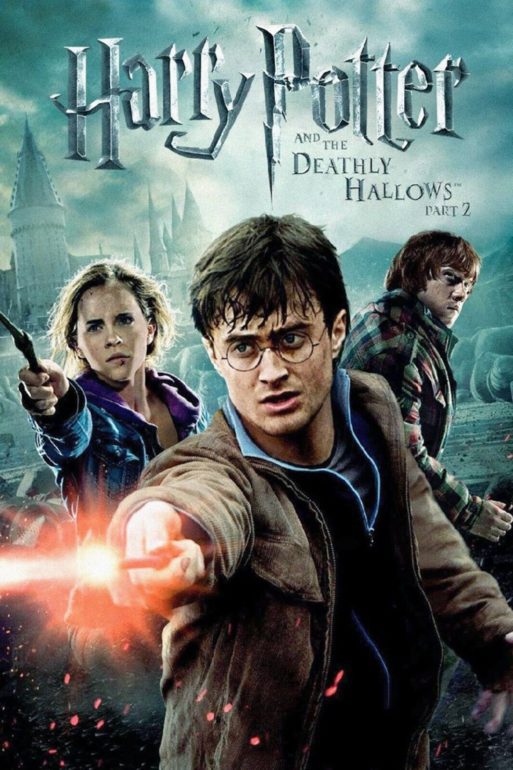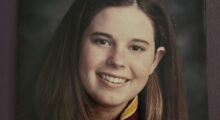 With the last Harry Potter movie released to theaters, it seems that this saga has finally reached its end. For the biggest Potter fans (me included), a feeling of loss surrounds the last film, much like a dear friend has passed away. Having read the books though, we die-hard fans have learned not to recoil from talk of death after having so many beloved characters killed off throughout the years.
With the last Harry Potter movie released to theaters, it seems that this saga has finally reached its end. For the biggest Potter fans (me included), a feeling of loss surrounds the last film, much like a dear friend has passed away. Having read the books though, we die-hard fans have learned not to recoil from talk of death after having so many beloved characters killed off throughout the years.
In fact, that might be J.K. Rowling’s literary trademark—her unflinching ability to eliminate fan favorites. While many would argue over her literary talents, I’d be shocked to find anyone to vehemently deny her fresh outlook on death. Death seems to ground her work. No matter how fantastical any situation may seem (flying cars and talking arachnids are just the beginning), death is the only inevitability that no spell or potion can correct.
Rowling approaches death in a way that children can understand and absorb. While nearly every age bracket has picked up her books at some point, they were originally intended for nine- to eleven-year-olds, and nevertheless tackle death with as much force as a Joseph Conrad novel. Rowling herself has said in an article for The Telegraph that her “books are largely about death.” The fact that they are also written with a younger audience in mind gives some credit to the topic, allowing for acceptance instead of fear.
Although death seems to take the forefront in the series, one could easily argue Rowling’s “deathly” angle actually serves to cast a spotlight on life. In an article from Obit Mag, freelance writer Kevin Nance points out that “the real subject of the Potter books is the fact of aging, a theme reinforced by our having watched the actors in the films grow from children to adults before our eyes.”
Indeed, readers of my generation (the original nine to eleven target) grew up with the books and pivotal characters. As Harry was navigating moments of insecurity, so were we. When Ron felt the pangs of teenage angst, so did we. Likewise, as the plots continued to get darker, our understanding of life and death matured. For that reason alone, J.K. Rowling has done young readers a service by providing a series with which they can grow. Life, death, and beyond intersect in the concluding chapters in ways that mimic real life, where the line between finality and infinity is often blurred. In a world where we can rarely define absolute beginnings and ends, Harry Potter makes sense of it all without ever underestimating the wonder of it.

 Harry Potter and The Deathly Hallows Part 2 by David Yates
Harry Potter and The Deathly Hallows Part 2 by David Yates


 Funeral Home Owner Chris Johnson Spending Halloween in Jail
Funeral Home Owner Chris Johnson Spending Halloween in Jail
 Our Monthly Tip: Toast a Loved One with a Personalized Glass
Our Monthly Tip: Toast a Loved One with a Personalized Glass
 My Cousin’s Death Taught Me the Meaning of Life
My Cousin’s Death Taught Me the Meaning of Life















JK Rowling did such a wonderful job on the series!
Report this comment
Being in the same generation, your article really resonated with me. Thanks so much, Katie!
I’m looking forward to seeing if Pottermore will effectively keep some of the HP magic alive… I refuse to believe that it’s the absolute end!
Report this comment
My husband and I, age 60, read all seven books and saw the first 5 movies between Jan. 2010 and April 2010. It was during this time frame that we knew my husband was dying of cancer. These books had a profound effect on us and gave us a great gift. He died May 19, 2011.
Report this comment
Hi Beth, it is good to know a couple like you and your hubby has this one thing in common and I am sorry for your loss. It is really rare for couple to enjoy doing things that you both like. I am a married person too with a 7months old son but me and my wife are very opposite when it comes to hobbies. Well as the saying goes “great friends are not seen on the things they are common but on their difference on how they respect each other” I so love this movie too since the college days of my life. I am wishing for another chapter of this movie.
Report this comment